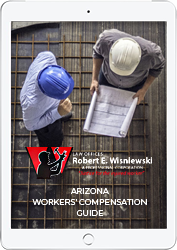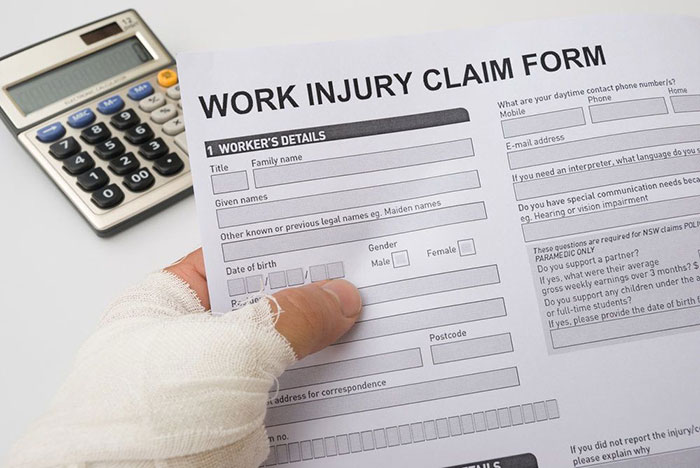What 1099 employees, subcontractors and freelancers need to know about their right to workers’ compensation
According to the U.S. Bureau of Labor Statistics, independent contractors are the largest group of all contingent employment arrangements. The BLS estimates that 1 in 10 American workers is an independent contractor — or nearly 15.5 million people. Other surveys have found that this number is even higher, saying contract workers make up 20 percent or more of the U.S. workforce.
Unfortunately, due to the costs of payroll taxes and insurance premiums, many companies are increasingly trying to cut corners by intentionally misclassifying employees as independent contractors, freelancers, subcontractors or 1099 employees in order to avoid paying benefits — including workers’ compensation. As a result, workers who are classified as independent contractors may be unable to obtain benefits for medical expenses and lost wages if and when they’re hurt on the job.
In short, the average American worker is increasingly being forced to pick up the tab for workplace injuries, instead of companies and employers.
Fortunately, you have legal rights.
Regardless of how your employer classifies you, you may be entitled to workers’ compensation if you can prove that you are, in fact, an employee entitled to benefits based on a number of factors pertaining to your job role.
Some of these factors can be subjective and complex, which is why it’s key to hire an experienced workers’ compensation attorney to represent you who can convince insurers and authorities that you were misclassified.
Without professional representation, many injured workers fail to receive the justice and compensation they deserve.
When determining whether or not you’re an employee, it doesn’t matter what name your employer uses to define you. What matters is the circumstances surrounding your work and employment.
Our experienced workers’ compensation attorneys can help you understand your legal options and help prove if you were misclassified as an independent contractor. Schedule your free consultation today.
Arizona Laws Protecting Independent Contractors & Freelancers
Arizona statute A.R.S. § 23-902(C) defines an independent contractor as:
A person engaged in work for a business, and who while so engaged is independent of that business in the execution of the work and not subject to the rule or control of the business for which the work is done, but is engaged only in the performance of a definite job or piece of work, and is subordinate to that business only in effecting a result in accordance with that business design, is an independent contractor.
In 2016, Arizona enacted a new “Declaration of Independent Business Status” (DIBS) law — the first of its kind in the United States — which sought to provide independent contractors and businesses with greater certainty about an individual’s employment status.
The use of the DIBS is optional, and the statute specifically states that choosing not to use this declaration cannot be evidence that an independent contractor relationship doesn’t exist.
Similarly, the existence of a DIBS document doesn’t mean the worker can never be found to be an employee.
Once signed and dated, a DIBS agreement acknowledges that the contractor:
- Operates an independent business
- Understands that they aren’t entitled to unemployment benefits (unemployment, health and workers’ compensation) or any other right arising from an employment relationship
- Is responsible for all taxes owed on payments received from the contracting party
- Is responsible for any registration, license, or other authorization necessary for the services rendered
If you truly are an independent contractor, then you won’t be eligible for workers’ compensation coverage. In Arizona, employers aren’t required to purchase coverage for independent contractors.
That said, many employers intentionally misclassify employees as contractors to cut costs and avoid paying benefits. In particular, an employer may try to wrongly deny benefits when a worker is injured on the job by arguing that the worker wasn’t an employee. In these circumstances, it’s vital you understand your rights. Don’t take your employer by their word.
Subcontractors vs. Employees: What’s the Difference?
In Arizona, employers cannot label workers as “independent contractors” merely because they want to. This classification is determined based on the relationship that exists between employers and those they hire to perform services.
To qualify as an independent contractor, a worker must meet 6 of 10 specific criteria commonly used to assess a worker’s status as either an employee or contractor. These criteria are:
- Contractor isn’t covered under the employer’s health insurance or workers’ compensation insurance.
- Employer doesn’t restrict the contractor’s ability to perform services for or through other parties, and the contractor is allowed to accept work from and perform work for other clients.
- Contractor has the right to accept or decline requests for services by the employer.
- Employer doesn’t dictate the performance, methods or processes the contractor uses to perform services.
- Contractor is responsible for all expenses incurred in performing the services for the employer.
- Employer expects that the contractor provides services for other clients.
- Contractor isn’t financially dependent on payment from the employer.
- Employer has the right to impose quality standards and a deadline for completion of services, but the contractor is allowed to determine the days worked and the time periods of work.
- Contractor is paid by or through the employer based on the work the individual is contracted to perform, and the employer doesn’t provide the contractor with a regular salary or any minimum regular payment.
- Contractor is responsible for providing and maintaining all tools and equipment needed to perform the services performed.
Questions and answers about compensation for a job-related accident, injury or illness in Arizona

Arizona Workers’ Compensation Guide
FREE E-BOOKWhat do you do if you’re injured on-the-job? Our free guide contains knowledge to help the injured worker understand the workers’ compensation application process.
Arizona 1099 Requirements: Questions to Ask
In spite of Arizona law, differentiating between independent contractors and employees in practice is often a difficult task. Here are some questions that can be asked to determine if an employee meets the requirements to be an independent contractor.
- Does the employer have the right to hire and fire you?
- Does the employer control your work and how you perform your work?
- Does the employer withhold taxes from your earnings?
- Is there a contract in place between you and the employer that defines your relationship and status?
- Do you supply your own resources to do the job?
- Are you able to seek additional jobs while working for this employer?
Our lawyers can help you answer these questions and determine which next steps to take to protect your rights.
Unmatched Dedication
“Mr. Wisniewski is the best lawyer that I have ever had the pleasure of working with and knowing. His dedication to me as a client has been unmatched. He is kind, caring, empathetic, and genuinely concerned about others. My life was restored after working with him and I was able to heal and continue teaching because of him.” – N.A.

Mr. Wisniewski has been recognized as the premier workers’ compensation lawyer in Arizona. He is the only claimants’ attorney recognized as a Fellow of The College of Workers’ Compensation.
"It costs no more to hire the best."
Don’t Take Your Employer’s Word — Learn About Your Workers’ Comp Rights
If you feel you may have been unjustly denied benefits by your employer after being misclassified as an independent contractor, you should seek legal counsel right away. At the Law Offices of Robert E. Wisniewski, we understand your frustration when faced with this complex issue.
We pride ourselves in seeking justice for injured workers and fighting for their rights. We provide prompt, professional and courteous personal service.
Our team is ready to stand by your side to make sure you receive the justice and compensation you deserve.
We will also help ensure your employer is not feeding you lies and misinformation in order to avoid paying out the benefits you’re owed.
Why hire our Arizona workers’ comp lawyers?
- We understand the special needs of an injured worker
- Trained and helpful staff
- Personal attention to clients
- Calls promptly returned
- Clients kept up-to-date on case
- State-wide service
- Aggressive & experienced representation
- Hablamos español
While our main law office is in downtown Phoenix, we handle workers’ compensation claims throughout Arizona – including Yuma, Kingman, Payson and Flagstaff.






